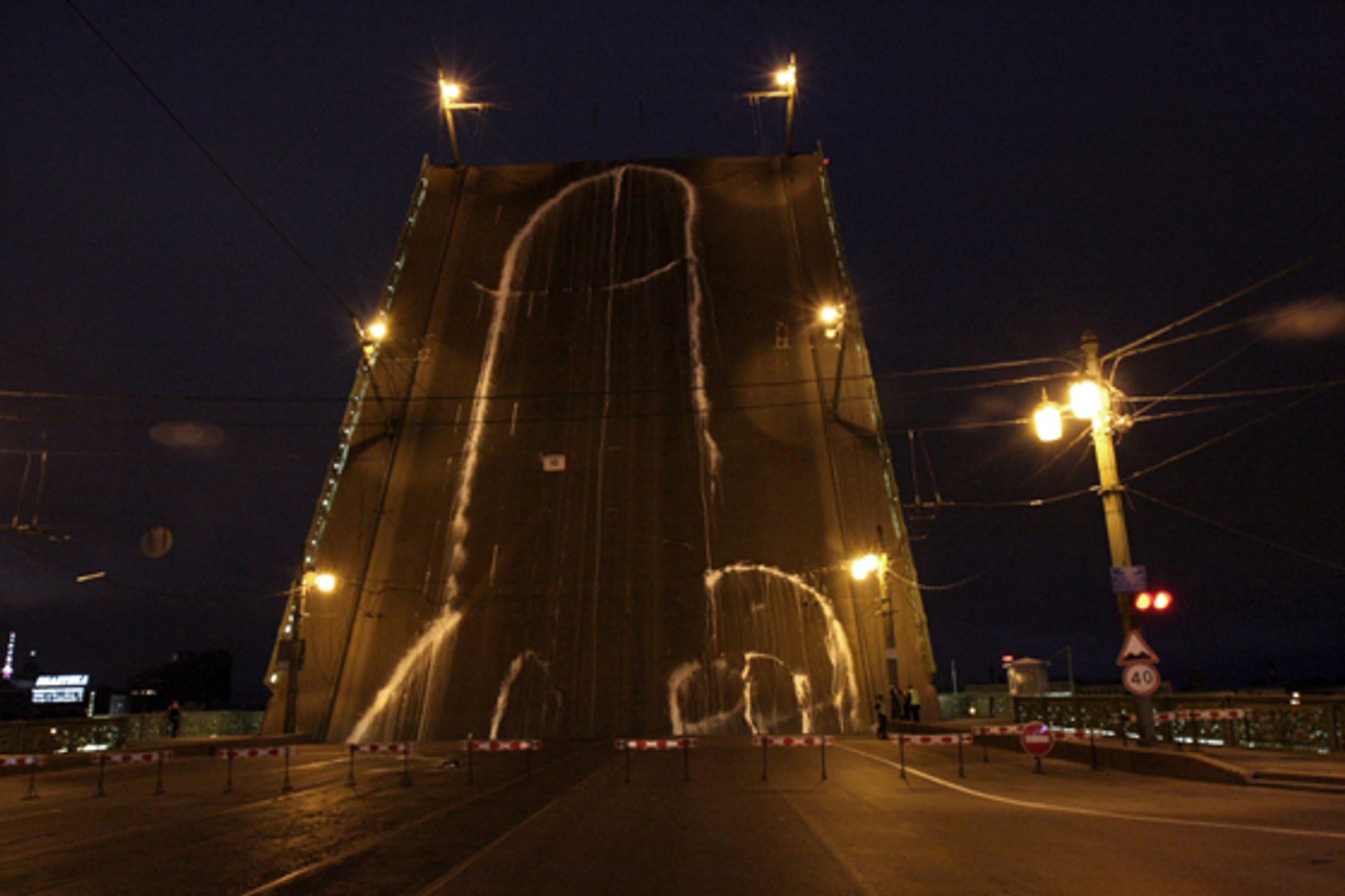The political performance artist Pyotr Pavlensky has been pulled from the running for Russia’s top art prize, eliciting a storm of criticism about growing censorship from curators and several resignations from the selection committee.
Pavlensky was nominated for the visual art category in the state-sponsored Innovatsiya (Innovation) Prize, for his performance Threat: Lubyanka’s Burning Door, in which he set fire to the entrance of the Federal Security Service (FSB) building in Moscow in November 2015. (The FSB is the successor agency of the KGB.) He was arrested for that performance, is being tried in absentia in St Petersburg for an earlier piece, and meanwhile has been held in Moscow’s Serbsky Centre for a court-ordered psychiatric evaluation for several weeks.
After Pavlensky’s name was removed from the shortlist, eight curators and art critics withdrew from the selection committee, including Dimitri Ozverkov, the head of the contemporary art department at St Petersburg’s State Hermitage Museum. Four of them later returned to the committee on the condition that the visual art category—the top award—be cancelled altogether.
In a Facebook post on Tuesday, Ozerkov wrote: “It’s obvious: today’s de jure cancellation of Innovatsiya’s main category due to Pavlensky’s disqualification signifies his de facto victory.”
Anna Tolstova, the committee member who first nominated Pavlensky and who also quit, wrote on her Facebook page: “The Innovatsiya Prize is awarded not by a prosecutor but by the expert community, and I don’t feel obligated to agree with censorship and become part of the repressive machinery of the state.”
Nailya Allakhverdieva, one of the curators who agreed to return to the committee, wrote: “If this tendency continues, it’s not clear that the prize will survive under such policies of censorship.” Oksana Shalygina, the artist's partner, wrote on her Facebook page: "Political art in action! Confirmation of the borders and forms of political art is taking place even when the artist Pyotr Pavlensky is under arrest.The power of art doesn’t know walls and locks.”
In a statement posted on the website of the National Center for Contemporary, which runs the prize, Mikhail Mindlin, its general director, said the bylaws allow for any application to be rejected. “In this particular case, it concerns a work that was created during action that has clear signs of violating the law, and caused material damage,” he said.

The artist collective Voina won the Innovatsiya visual art award in 2011 for their work A Dick Captured by the FSB, in which they spray-painted a massive penis onto a bridge opposite St Petersburg’s Federal Security Services building the previous year.
Human Rights Watch has called Pavlensky’s confinement in the hospital “a sinister reminder of the Soviet legacy of punitive psychiatry, and the abuse of psychiatry to silence critics”.

